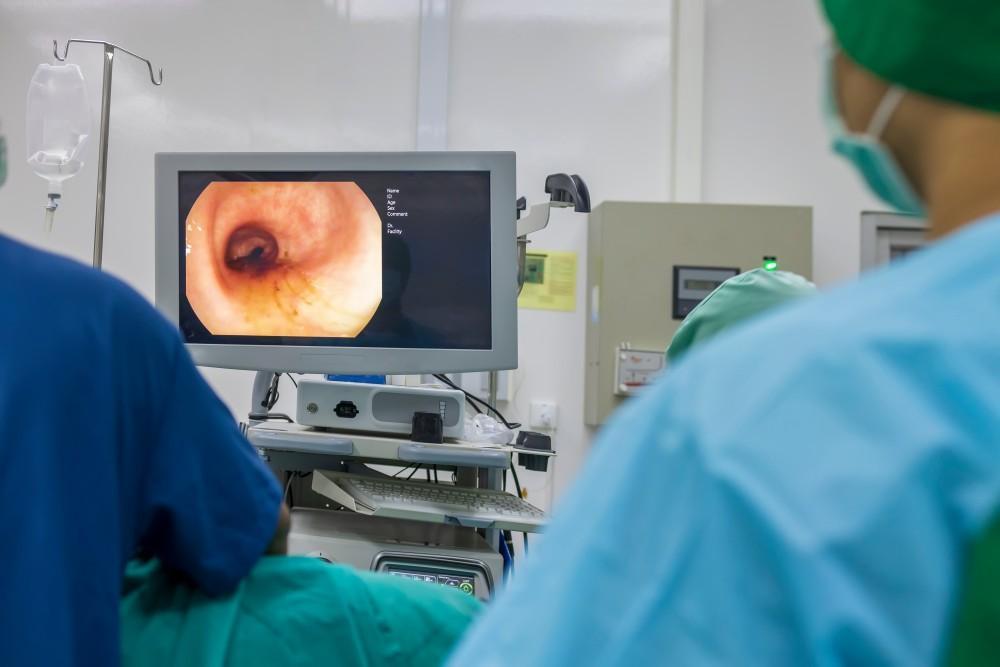
What Happens If Polyps Aren't Removed?

If you’re at average risk for colon cancer, you should undergo a colonoscopy every 10 years, starting at age 45. If you’re at increased or high risk for colon cancer due to family or personal history, you must have a colonoscopy more frequently.
When your doctor inserts the colonoscope into your rectum and threads it through to your colon, they’re looking for abnormalities that could be a sign of colon cancer or a precursor to colon cancer. One type of common abnormality is called a polyp.
A colon polyp is a clump of abnormal cells that grows in the lining of your colon. Some polyps are pedunculated, which means they’re attached to a stalk. At Colon and Rectal Surgeons of Greater Hartford, when our colorectal experts spot a polyp during your colonoscopy, they remove it.
Because most polyps are benign and never become cancerous, you may wonder if they’re even worth the bother of removing. Can’t you just leave them in place? Following are some reasons why you shouldn’t.
Polyps can mutate to cancer
The primary reason for removing any and all polyps detected during your colonoscopy is that a small percentage could mutate and become cancerous. Colon cancer kills about 50,000 people in the United States each year.
Even though only 15% of polyps detected during colonoscopy are villous or tubulovillous adenomas, which have a high risk of becoming cancerous, removing them completely eliminates that risk. Considering the stakes, then, there’s no justification for leaving a polyp in place.
In fact, one of the main reasons to have a colonoscopy is to remove polyps. Polyps are, by their nature, extremely proliferative cells, which means they grow at an abnormally fast rate and create many copies of themselves, just like cancer does. The more they mutate over time, the more likely it is that a mutation will eventually lead to cancer.
Colon cancer is a slow-growing cancer. That means it could take up to 10 years for a “benign” polyp to turn cancerous. By the time a polyp’s become cancerous, it may be too late to treat your disease, or your treatment could require extensive surgery.
Even “benign” polyps cause trouble
Noncancerous polyps aren’t as trouble-free as their “benign” label suggests. They’re abnormal growths that obstruct the passage of feces and could cause symptoms such as:
- Bleeding from rectum
- Black or tarry stool
- Chronic constipation or diarrhea
- Pain
- Anemia
Benign polyps are still abnormalities, even if they never become cancerous. They bring no benefits but raise your risk for colon cancer in the future.
We remove your polyps
During your colonoscopy, when we identify a polyp, we can usually remove it with small tools that go through the same tube as the miniature camera. Almost all polyps can be removed during the colonoscopy, with no need for an extra procedure.
Any polyp we remove is sent to a laboratory to see if it’s potentially cancerous. If your polyps are extra large or have signs of cancer, we may need to perform a separate procedure.
Regular colonoscopies with polyp removal decrease your risk for colon cancer. They also improve your chances of remission and survival if we do detect cancer; colon cancer in its early stages is highly treatable.
Remove troublesome colon polyps by booking a colonoscopy today. Call our team at 860-242-8591, or schedule an appointment online.
You Might Also Enjoy...


How a Colonoscopy Can Save Your Life

4 Signs You May Have Pilonidal Disease

Start the New Year Fresh with a Colonoscopy

5 Tips for Managing Your Crohn's Disease During the Holidays


